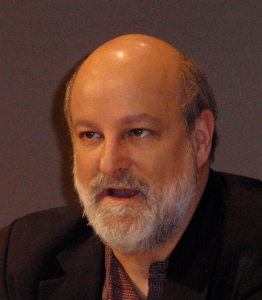What do I think of this book by the Kostenbergers? Let’s dive into the Deeper Waters and find out.
I wish to thank Andreas and Margaret Kostenberger first off for sending me a copy of this book for review purposes. Ever since my marriage, I have been interested in reading material that can help me improve in that area. The book certainly starts off with a gripper. Andreas talks about coming home from being overseas and going through his old home and realizing his Dad’s things were gone. It hits him then. His parents were no longer together. His Dad had moved out.
That is a good motivator to make sure you get marriage right. No one wants to have that.
Now let’s be clear about something at the start. While this book is directly applicable to those of us who are married, the Kostenbergers have plenty to say for singles and it’s not just about how to get a mate. When they go through the Bible, they point out people who served God faithfully and who yet were never married. This includes men and women both.
They definitely go through the Bible as well! They start with Genesis and then give a look all the way through the Bible to see how the relationships between men and women are described. They note that the consistent position throughout the Bible is that in the family, the man is to lead and that this would apply to church and government as well. This does not mean women play no role whatsoever of course, but that the main position has been given to the men.
It’s towards the end that they say how this all works out and this is one area I would have liked some more expanding on. For instance, let’s go with the house rules of Ephesians 5 and the Kostenbergers argue for male leadership here. That means that a husband is to love his wife definitely as Christ loved the Church, and a wife is to submit to and respect her husband.
Okay. How does that work?
Because we know too often that there has been the abusive husband who has used the submission passage like a whip. I am absolutely convinced the Kostenbergers want nothing to do with that. There is never a place for a husband to abuse his wife. Yet knowing the misuse of the passage does not tell us the proper use. How would they recommend this be lived out? I would like to have seen more on this.
I was also surprised there was not much said about the sexual relationship between the two persons in marriage. How should they approach this? In light of Biblical submission, this is a topic that is important too. We wouldn’t want to say a husband has a right to sex on demand of course, but then there is the passage in 1 Cor. 7 about not denying your bodies to one another. Perhaps the Kostenbergers have written on this more elsewhere. If so, I would like to get to see it.
I also found the appendices to be quite helpful. The history of feminism was fascinating and it’s certainly led to where we are today. I had no problem seeing them go after Rachel Held Evans either for her book, A Year of Biblical Womanhood, which I also found to be severely lacking. The Kostenbergers explain the hermeneutical mistakes that Evans makes quite well.
To which, it’s great to see a section on hermeneutics as well. They make it clear that this is not a science per se, but rather a methodology. After all, we may not reach 100% certainty on what a text means, but we can reach a case of high likelihood of what it means. It is not to be seen as an all-or-nothing game.
If you’re someone who disagrees with their view on male headship, you will find your position is treated fairly as well. The Kostenbergers are gentle on those who disagree with them. The book is highly approachable and you do not need to be specifically trained in Biblical studies in order to get a lot out of it. In fact, getting this book could be a great beginning to Biblical studies.
Those interested in male/female relationships and what it means to be a man or woman should get this book and learn it well.
In Christ,
Nick Peters
